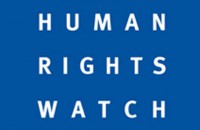Denial of rights in Burma, Bangladesh lead to trafficking: HRW
DHAKA, May 27 (NsNewsWire) — Rohingya and other survivors of dangerous boat voyages from Burma and Bangladesh describe horrific treatment by unscrupulous smugglers and traffickers in Burma, and abuse and neglect aboard ships, Human Rights Watch said today.
A regional meeting scheduled on May 29, 2015, in Bangkok must find solutions to the so-called boat people exodus, the international rights body said.
Rohingya explained to Human Rights Watch how they endured two months at sea, packed below decks in cramped conditions with limited food and water and very poor sanitation. Boats carrying approximately 100 mostly Rohingya men and women each abandoned passengers at an undisclosed location along Thailand’s coast, leaving them to fend for themselves until they were found by the Thai authorities. According to international agencies, 3,000 to 4,000 people may still be aboard ships at sea.
“Survivors describe how they flee persecution in Burma only to fall into the hands of traffickers and extortionists, in many cases witnessing deaths and suffering abuse and hunger,” said Brad Adams, Asia director at Human Rights Watch. “Interviews with officials and others make clear that these brutal networks, with the complicity of government officials in Burma, Bangladesh, Thailand, and Malaysia, profit from the desperation and misery of some of the world’s most persecuted and neglected people.”
Regional states and other governments with the ability should make commitments to redouble search-and-rescue efforts and ensure that thousands of Rohingya and Bangladeshi asylum seekers and migrants have full access to procedures for seeking international protection and humanitarian assistance, Human Rights Watch said.
“Burma and Bangladesh need to stop persecuting Rohingya, while Thailand and Malaysia urgently need to shut down camps where boat people are held to end abuses and ensure that no more mass graves are created on their soil,” Adams said.
In recent weeks scores of boats carrying thousands of Rohingya asylum seekers and migrants from Burma and Bangladesh have arrived in Thailand, Malaysia, and Indonesia. The three governments responded by pushing the boats back out to sea, leading to domestic and international condemnation and forcing them to reconsider these policies. In response to pressure, the foreign ministers of the three countries met in Kuala Lumpur on May 21. Malaysia and Indonesia agreed to permit boats to land, but only with the proviso that the international community provide humanitarian assistance and help resettle or repatriate all the passengers within one year.
Conditions for Rohingya in Burma are extremely dire, with limited access to education, employment, and the freedom to travel or observe their own religion cited as reasons for flight. Some flee voluntarily to escape these abusive conditions, but Rohingya also told Human Rights Watch that in some cases, smugglers lured and duped people to make the sea journey without disclosing what was involved, and sometimes handed them over to traffickers.
One 13-year-old Rohingya girl told Human Rights Watch how men grabbed her in front of her family: “They dragged me to the boat, they had sticks, and threatened to beat me. I screamed, I cried loudly. My parents were weeping, but they couldn’t do anything.”
